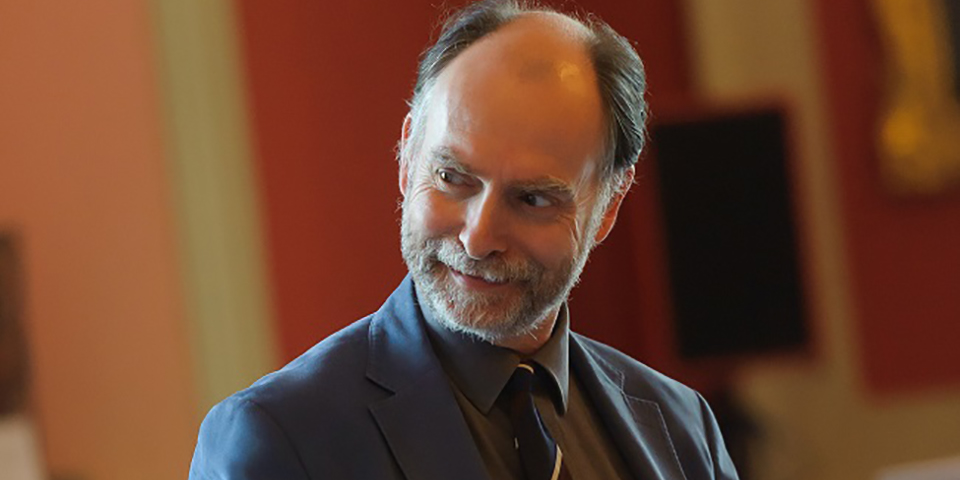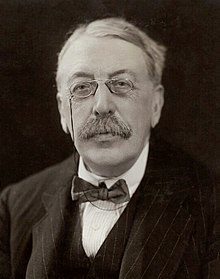David Truslove reviews For the Fallen performed by the BBC National Orchestra and the Chorus of Wales at Hoddinott Hall, including works from Stanford and Ravel.
‘For the Fallen’ – BBC National Orchestra and Chorus of Wales – Hoddinott Hall 27th October 2018
Ernest Farrar Rhapsody No.1 ‘The Open Road’, Op. 9
Frederick Septimus Kelly Elegy, ‘In Memoriam Rupert Brooke’
Maurice Ravel Le Tombeau de Couperin
Charles Villiers Stanford Mass ‘Via Victrix (1914-1918)’, Op. 173
BBC National Orchestra and Chorus of Wales / Adrian Partington
Kiandra Howarth (soprano), Jess Dandy (contralto), Ruairi Bowen (tenor) & Gareth Brynmor John (baritone)
It seems almost inconceivable that a composer of the stature of Charles Villiers Stanford (1852-1924) has had to wait nearly a century for the world premiere of his Mass ‘Via Victrix (1914-1918)’. Completed in 1919, it’s a large-scale setting belonging to the tail-end of his career and conceived within the 19th century symphonic tradition whose forbears include Beethoven and Bruckner. The work’s neglect is as much to do with the absence of orchestral material (restored for this performance by Stanford scholar Jeremy Dibble) as changing post-war attitudes to the conservatism of the Old Guard (Parry and Stanford) and society’s rejection of anything considered outmoded or associated with pre-war imperialism. Only just a few years after Stanford’s death, audiences would have been gripped by the striking vitality of Constant Lambert’s The Rio Grande and William Walton’s Belshazzar’s Feast – works still regularly performed today.
But the modernity of those works is not to gainsay Stanford’s extraordinary facility (according to T.F. Dunhill, he ‘scarcely ever made a sketch’), a well-honed theatrical instinct and an impressive, even daring, harmonic resource. Taken together, they shape a work fully deserving of For the Fallen, this first performance given by the BBC National Orchestra and Chorus of Wales as part of nationwide events marking the centenary of the end of the Great War. The Mass was Stanford’s fervent response to the conflict and intended as a memorial to the fallen yet also written in the spirit of thanksgiving for the Allied victory –the title translates as ‘Way of Victory’. This explains the work’s vigour, its march-like rhythms and quasi-operatic gestures that gave musical expression to Stanford’s Latin dedication ‘Transiverunt per ignem et aquam et eduxisti in refrigerium’ – ‘We went through fire and water, but thou broughtest us out into a wealthy place’.

This meticulously prepared account under the helm of Adrian Partington outlined the work’s musical pedigree (including echoes of Bach and Brahms) as well as Stanford’s individual approach to structure; most notably apparent in the inclusion of a funeral march in the ‘Agnus Dei’, a movement where soprano and viola soloists were especially mellifluous. A quartet of horns left a memorable impression in the ‘Sanctus’ and the ‘Benedictus’ glowed with a melody of Edwardian splendour. Stanford was at his most garrulous in the extended ‘Gloria’ and ‘Credo’ and, despite well-judged pacing, its climaxes arrived more with a sense of relief than exhilaration. That said, jubilant brass and organ brought unequivocal triumph to the closing pages. From the opening bars of the Kyrie, Stanford’s superb craftsmanship was audible in the subtle fusion of choral and solo forces, moulded seamlessly within an ever-changing harmonic scheme, shaped and ideally balanced in this performance.
Throughout, there was no doubting the quality of both playing and singing, but, at nearly seventy minutes, the work felt overly long with its uneven level of invention. The BBC National Chorus of Wales were in fine fettle and amongst the soloists Ruairi Bowen and Gareth Brynmor John brought reassuring warmth of expression, while Kiandra Howarth graced her soaring lines with gilt-edged tone. If anything, this revelatory performance made clear it’s time to re-evaluate a composer who is mostly remembered for his contribution to Anglican church music. Thanks to Dibble, Partington and the BBC in Wales there is evidently far more to discover about this irascible Irishman. Top marks for enterprise!
For the Fallen began with three other musical responses to the Great War. Ravel’s stylish orchestrations from Le Tombeau de Couperin (each dedicated to a friend lost in the war) drew much delicate colouration from the BBC players, Partington coaxing deliciously fragrant woodwind phrases and some wonderfully quick-fire exchanges in the closing ‘Rigaudon’. Prior to this Gallic charm was the heartfelt Elegy, ‘In Memoriam Rupert Brooke’ by Frederick Septimus Kelly, begun in a tent at Gallipoli in the wake of Brooke’s death from blood poisoning in 1915. Kelly survived the Turkish campaign, only to perish at the Somme a year later. Scored for harp and strings, his Elegy is both beautiful and austere, sonorous yet economical, and its simmering textures perfectly balanced in this tender rendition. The work’s numbed grief is a far cry from the hearty optimism of Ernest Farrar’s vividly scored Rhapsody No.1 ‘The Open Road’, written in 1908. This unbuttoned account gave free rein to the work’s youthful swagger, the life of its composer tellingly cut short in the last months of the war, Farrar having been at the front in France for only two days.
Header image: Charles Villiers Stanford in 1921
You might also like…
The War Requiem, Op. 66, is a large-scale setting of the Requiem composed by Benjamin Britten mostly in 1961 and completed in January 1962. Edward Christian-Hare attends a performance of the BBC National Orchestra of Wales and Chorus of Wales’ rendition of The War Requiem in St David’s Hall to review the night.
David Truslove is a regular contributor to Wales Arts Review.











